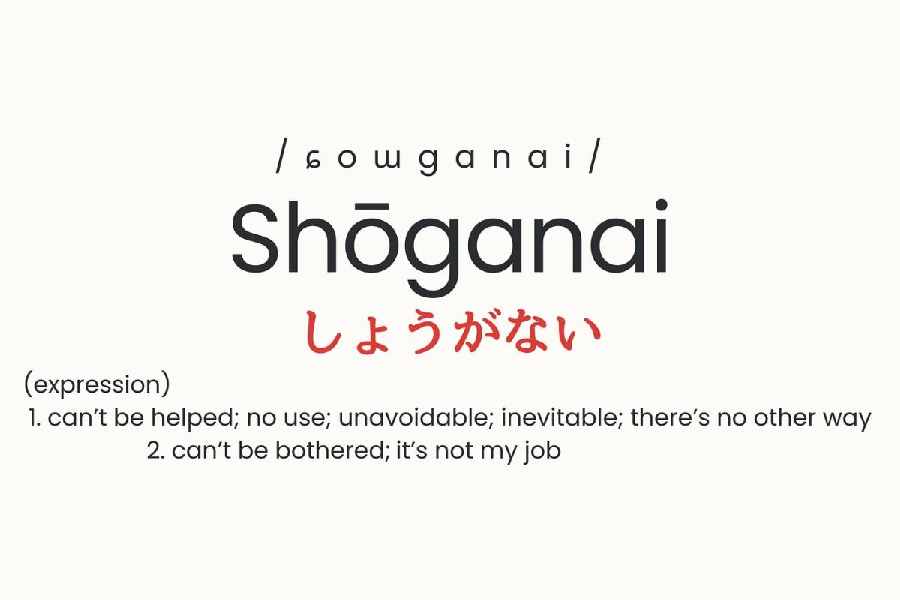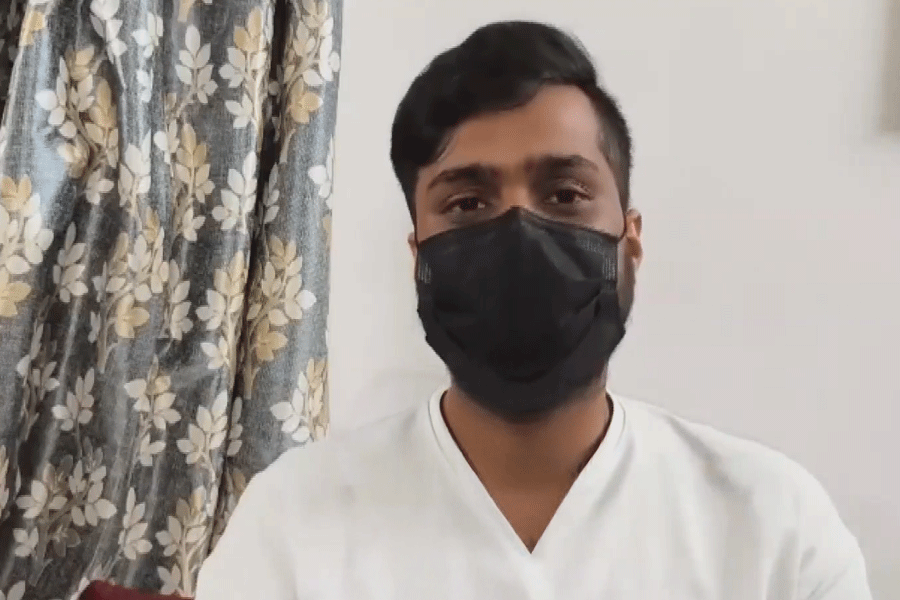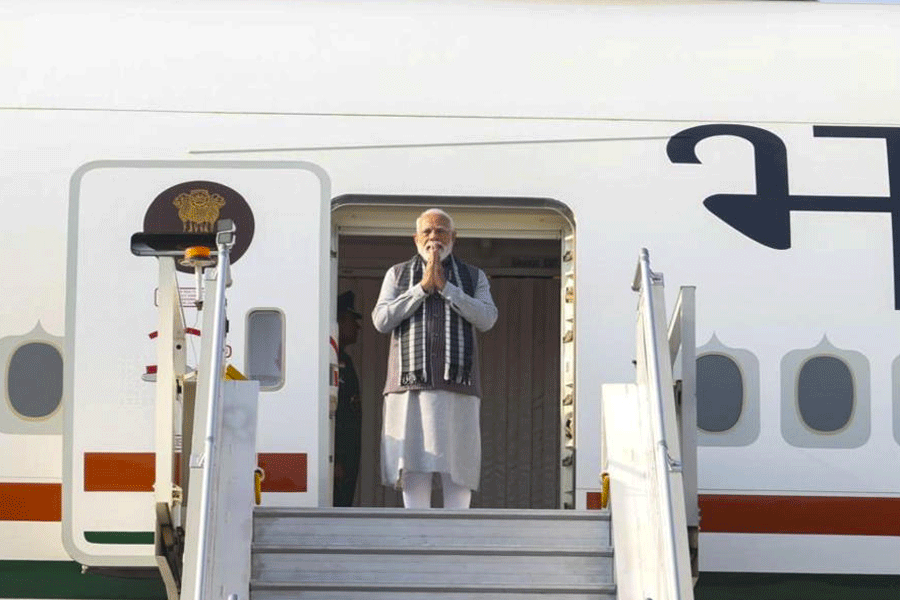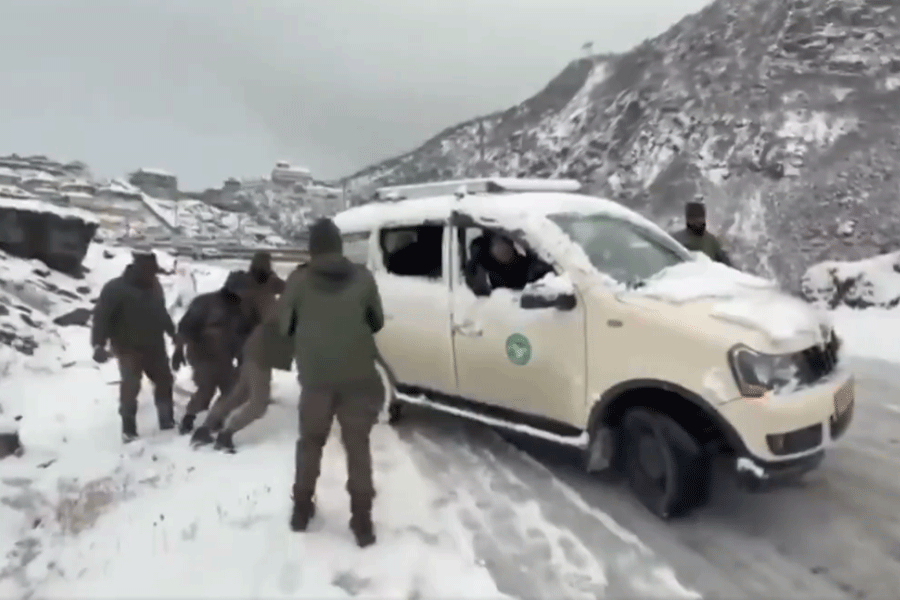Dangerous attitude
Sir — The Japanese word, shoganai, captures the art of accepting what cannot be helped. While it works beautifully when a train is late or when the rain ruins a picnic, it is less helpful when applied to climate change. The mindset of shrugging and moving on may spare frustration but it also risks encouraging silence where urgency is needed. Rising seas, unseasonal heat, and failing crops are not inconveniences to be endured with stoic calm. They demand action. Acceptance of a broken umbrella is one thing; acceptance of a broken planet is quite another. A culture of shoganai lets leaders and corporations off the hook while the public practises quiet resignation. A little resilience is healthy but resignation becomes dangerous when it erodes responsibility.
A.K. Sen,
Calcutta
Be cautious
Sir — India’s diplomatic openness towards China and Russia should not be seen as an abandonment of its alliance with the United States of America (“Fine balance”, Sept 2). The bonhomie among India, China and Russia merits a nuanced view. It affirms that India will defend its energy and strategic autonomy amid punitive US tariffs while not detracting from the scientific and export ties with the US. What this really means is that diplomacy can diversify alliances without severing existing bonds.
A.G. Rajmohan,
Andhra Pradesh
Sir — The prime minister of India, Narendra Modi, met his Chinese and Russian counterparts at the 2025 Shanghai Cooperation Organisation Summit in Tianjin without surrendering longstanding positions or diluting commitments. The visit makes clear that dialogue is not capitulation. Border talks with China will only succeed if sustained momentum follows, and the oil partnership with Russia reflects energy security concerns more than ideological alignment. The moment deserves attention yet requires patience and follow-through.
G. David Milton,
Maruthancode, Tamil Nadu
Sir — There is reason to celebrate India’s assertiveness in resisting pressure from the US. It shows that tariffs alone cannot force policy shifts on energy independence. India’s diplomatic posture projects strategic autonomy. Critics will argue that this will cool relations with the US and may isolate India from a like-minded democratic bloc. And the truth is that India needs strong ties with Washington even as it meets other powers halfway.
R.S. Narula,
Patiala, Punjab
Sir — The Tianjin summit does not resolve historic border tensions between India and China. De-escalation along the Line of Actual Control may not survive in the long term unless institutional mechanisms hold. Trade remains imbalanced despite talk of economic cooperation. India must not mistake symbolism for substance. A handshake with China may signal intent but real trust and fairness require time, not a summit appearance.
Niamul Hossain Mallick,
East Burdwan
Yellow treasure
Sir — Researchers have identified jarosite — a yellow, iron-rich sulphate mineral with properties similar to minerals found on Mars — in Gujarat’s Matanomadh village. This opens the possibility of using the site as a test bed for future space missions. The value of this discovery lies in its potential to link Earth’s geological past with Martian conditions. Protecting the site must be a priority as coal mining in the region threatens its integrity. Preserving such a resource is essential not only for planetary science but also for India’s scientific standing.
Manoj Parashar,
Mumbai
Sir — The discovery of jarosite in Kutch is scientifically significant but it also raises concerns. Research sites often face pressures from commercial exploitation and local land use. A balance between scientific exploration and the needs of nearby communities must be ensured. Without such balance, resentment may build locally and the project could face opposition. Scientific progress requires not only minerals and instruments but also trust and cooperation from those who live near the research sites.
Sreemoy Ghose,
Calcutta
Make space
Sir — The United Kingdom has announced reforms to sentencing laws to address overcrowded prisons. Measures include community punishments, suspended sentences, and early release schemes. This effort is commendable as overcrowding is a major human rights concern. In India, however, the situation is even more dire, with an average occupancy rate of over 131% and some prisons exceeding 250%. Conditions in such places are degrading and violate Article 21 of the Constitution. The time has come for India to act with equal urgency.
Mohammad Asad,
Mumbai
Scary sign
Sir — Several beaches in Spain were closed after blue dragons, a venomous sea slug, washed ashore in large numbers. These creatures, though only four centimetres long, deliver a sting stronger than the jellyfish they consume. Their sudden arrival in the Mediterranean has disrupted tourism and alarmed locals. Scientists suggest rising sea temperatures are enabling their spread. This should serve as a reminder that climate change has direct consequences on daily life, from altered ecosystems to lost livelihoods. Environmental policy cannot remain an afterthought.
S. Balakrishnan,
Bengaluru
Sir — Calls for urgent scientific study of blue dragons are justified. Local communities cannot be left to bear the costs of disrupted tourism. Families depending on seasonal visitors now face cancelled bookings and lost income. Authorities must balance ecological research with immediate economic relief.
Asim Boral,
Calcutta











